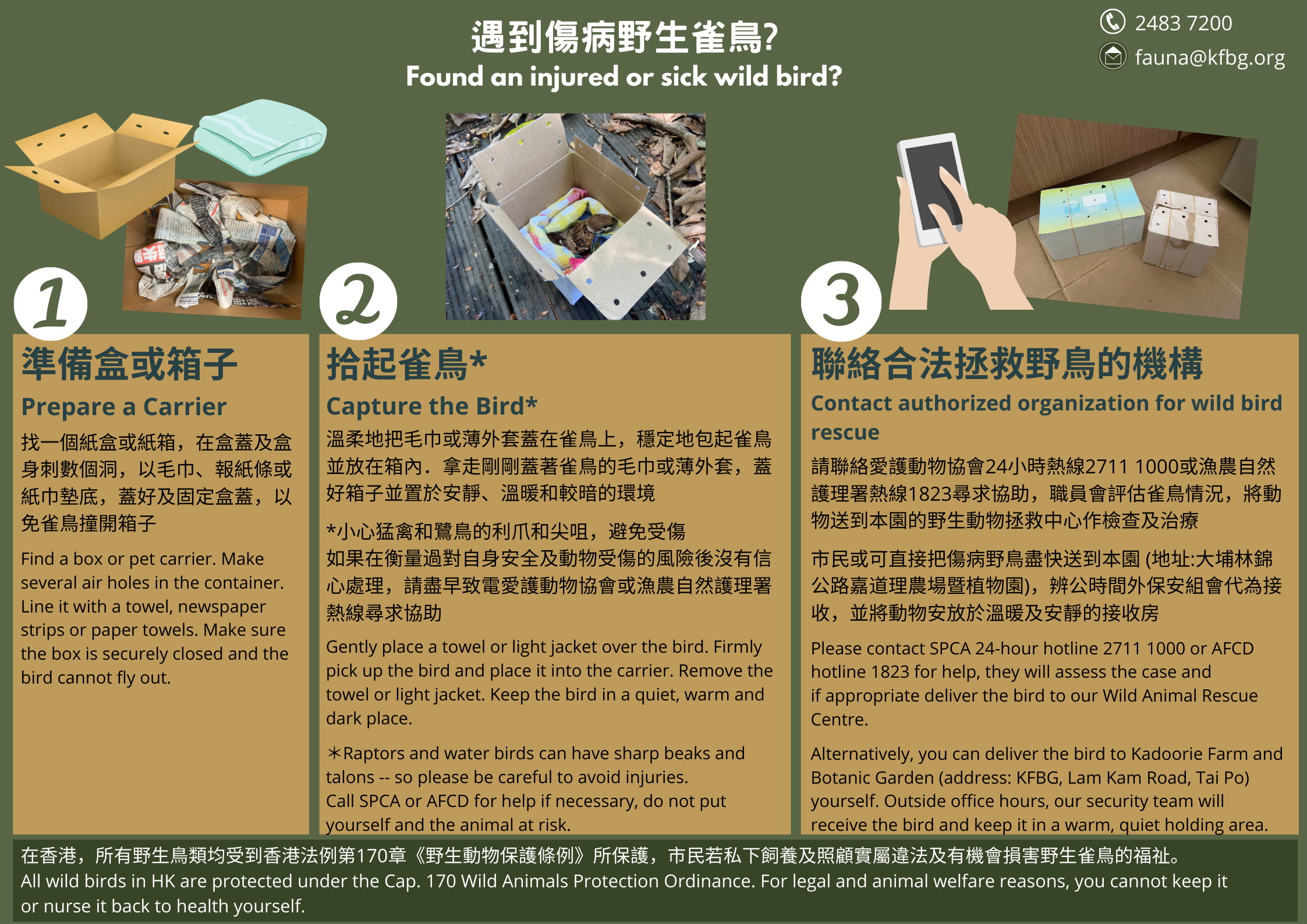A request: Do not feed injured or sick birds

We receive many calls from citizens who have found a baby bird or an injured bird. Some worry that the bird is hungry and feed it food such as rice, green peas or bread before sending it to the rescue centre.
Why is it harmful to feed rescued birds?
BABY BIRDS: In most cases, baby birds found on the ground are NOT injured or orphaned and should NOT be removed from the area. Their parents are still nearby and will feed them when humans aren’t around. Click here [LINK 1- sparrow case, LINK 2- white-eye case] to learn how to put healthy baby birds out of danger and back with their parents.
INJURED OR ORPHANED BIRDS: Birds that are injured or orphaned need help. These cases are generally not medically stable (even if they look bright) and the top priorities are warmth, rehydration and stabilisation.
Digesting food is a metabolically costly process that requires energy and resources from the body. A sick or injured bird is using all its energy and resources just to stay alive. Feeding a bird in this state can cause harmful shifts in fluids and electrolytes within the body, leading to serious illness and even death. This phenomenon is known as ‘refeeding syndrome’ and sadly we sometimes see it in birds that have been fed by well-meaning members of the public before arriving at KFBG.
What can you do?
- Keep the bird in a quiet, warm and dark place.
- Call SPCA (2711 1000) to deliver the bird from you to KFBG, or deliver the bird to KFBG yourself. The sooner the bird reaches us the better.
- This will allow the rescue team to start stabilising the bird: rehydrating it with fluids by injection, giving oxygen if necessary, performing initial medical checks.
- Once the bird is stable, we will start feeding with an appropriate diet for its species, age and condition
- If, due to extreme weather or other difficult circumstances, you are unable to arrange prompt transfer to KFBG, please contact our Fauna Department hotline at 2483 7200/ 6713 9881 for advice
Please send the bird to us promptly and do not keep it yourself! Not only is it illegal for unauthorised persons to keep native wild birds, but in our experience the longer birds have been kept by the public, the more difficult it is to get them fit and healthy enough to return to the wild.
Finally, we would like to thank the public for looking out for wildlife during the 2022 baby bird season – we appreciate all your support and care!


